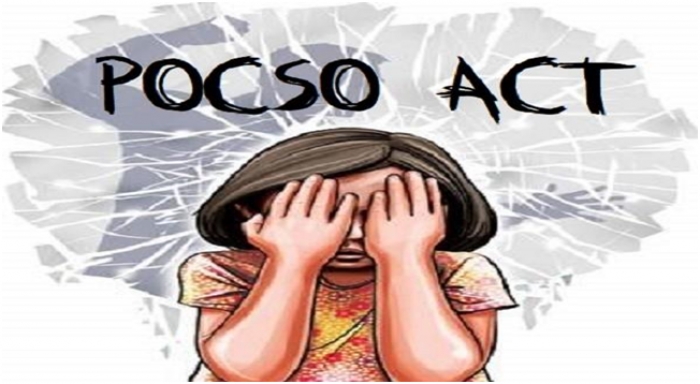New Delhi – The Delhi High Court has delivered a landmark judgment emphasizing child protection over family dynamics, as Delhi HC upholds conviction of a man for repeatedly raping his 15-and-a-half-year-old sister. Justice Sanjeev Narula’s bench rendered this crucial verdict on August 27, which was officially released on Monday, reaffirming society’s commitment to protecting minors from sexual abuse.
The case represents a complex intersection of family loyalty and legal justice, where Delhi HC upholds conviction despite the victim and her family’s united plea for the accused’s release. The court’s decision underscores the paramount importance of child welfare over familial considerations in cases involving minors.
Trial Court’s Original Conviction Under POCSO Act

The Delhi HC upholds conviction ruling confirms the trial court’s December 2024 order that found the accused guilty of rape and penetrative sexual assault under the Protection of Children from Sexual Offences (POCSO) Act. The original conviction established the legal framework for protecting the minor victim while ensuring justice prevailed despite challenging family dynamics.
The trial court had awarded ₹13 lakh as compensation to the victim, recognizing the severe trauma and long-term impact of the sexual abuse. This substantial compensation reflects the court’s acknowledgment of the victim’s suffering and the need for comprehensive rehabilitation support.
Appellant’s Challenge and Defense Arguments
During the appeal process, the convict mounted a comprehensive defense challenging the trial court’s findings. The Delhi HC upholds conviction decision came after carefully examining his arguments that the judgment relied on assumptions rather than concrete evidence. The appellant claimed his sister had testified about being in a relationship with another man, whom he alleged was responsible for her pregnancy.
The defense strategy included contesting the reliability of DNA evidence that linked the accused to the foetus. This scientific evidence proved crucial in establishing the biological connection between the accused and the victim’s pregnancy, forming a cornerstone of the prosecution’s case against the appellant.
Family’s United Plea for Release
In a striking courtroom scene, the Delhi HC upholds conviction case witnessed the victim and her entire family appearing united in requesting the accused’s release. The girl, displaying visible anxiety and speaking in a low voice with nervous gestures, told the court that her brother was not responsible for her pregnancy.
Also Read: Businessman Killed Friends Bar Fight: Shocking Murder After Abduction
This family dynamic presented the court with a complex moral and legal dilemma, where traditional family loyalty conflicted with the imperative to protect a minor victim. The court observed that such scenarios are unfortunately common in intra-familial abuse cases, where victims often face pressure to protect their abusers.
Court’s Emphasis on Minor’s Consent Irrelevance


The bench delivered a clear legal principle when Delhi HC upholds conviction by stating that the victim’s consent was “irrelevant” due to her minor status. This fundamental aspect of POCSO Act jurisprudence ensures that children cannot legally consent to sexual acts, regardless of their apparent willingness or family pressure to retract accusations.
The court noted that the victim had consistently identified the accused in her earliest complaint and in her statement before a magistrate, establishing a pattern of identification that supported the prosecution’s case despite later retractions.
Intra-Familial Abuse and Silent Suffering
Justice Narula’s observation that Delhi HC upholds conviction cases often involve abuse “shrouded in silence” highlights a critical social issue. The court recognized that intra-familial sexual abuse frequently remains hidden to protect adult family members at the expense of child victims, creating a cycle of silence that perpetuates harm.
This judicial recognition addresses the systemic challenges in prosecuting family-based sexual abuse cases, where victims face enormous pressure to prioritize family unity over personal justice and healing.
Court’s Unambiguous Message on Child Protection


The Delhi HC upholds conviction judgment delivered a powerful message about child protection priorities. Justice Narula emphasized that courts cannot repair broken family dynamics but must maintain clear principles regarding child welfare. The court stated that “a child’s bodily integrity is inviolable,” establishing this as a non-negotiable principle in child protection cases.
The judgment specifically noted that “compassion for a family in anguish cannot translate into impunity for harm done to a child,” creating a legal precedent that prioritizes child protection over family preservation in abuse cases.
Compensation and Rehabilitation Measures
Beyond the conviction confirmation, Delhi HC upholds conviction ruling directed the Delhi State Legal Services Authority (DSLSA) to coordinate comprehensive counselling for both the victim and her family. This holistic approach recognizes that healing requires addressing the entire family system affected by the abuse.
The court also ensured the disbursement of the ₹13 lakh compensation awarded by the trial court, providing financial support for the victim’s long-term rehabilitation and recovery needs. This substantial award reflects the severity of the trauma and the court’s commitment to supporting survivors of sexual abuse through comprehensive remedial measures that extend beyond mere legal punishment.

